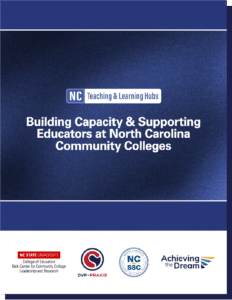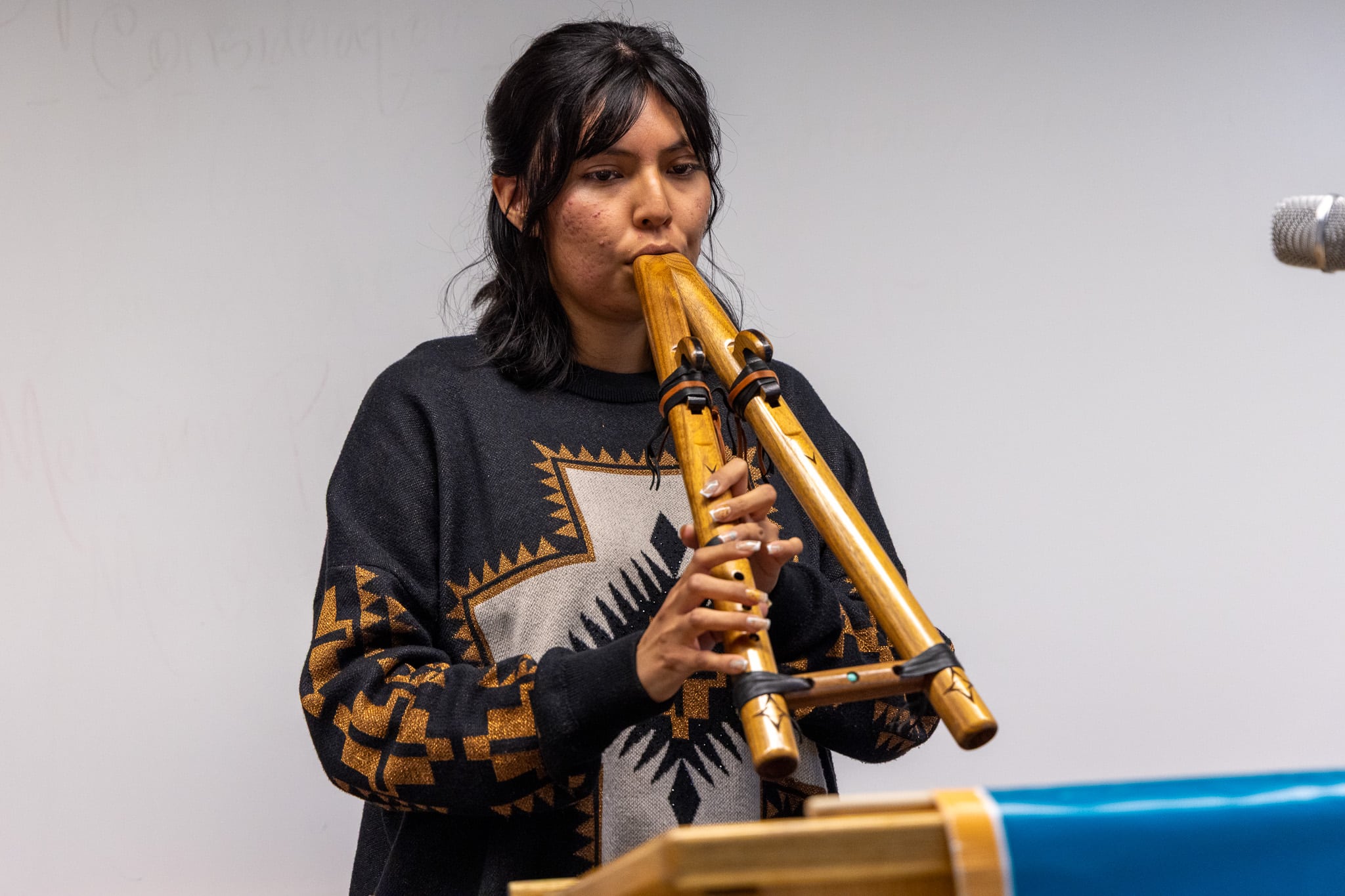A new guidebook published by the Belk Center for Community College Leadership and Research and Achieving the Dream outlines the collaborative work of the two organizations (begun in 2019) that led to the creation of a statewide system of regionally affiliated professional learning hubs throughout North Carolina to serve the state’s 58 community colleges. Building Capacity and Supporting Educators at North Carolina Community Colleges offers insights gleaned from the evaluation of the project, performed by DVP-Praxis, and provides guidance to college leaders, professional learning leaders, and educators on the most effective steps to take to help ensure that a hub-based professional learning program successfully builds a culture of teaching and learning excellence.
Preliminary work and the creation of the Hubs
The guidebook shares the organizations’ exploration of existing institutional teaching and learning initiatives and opportunities for professional learning among a selected cohort of North Carolina community colleges, and it describes how information gathered through this exploratory process was leveraged to create four Teaching and Learning Hubs in 2021. Each of the four Hubs — West Hub, East Hub, Central Hub, and Piedmont Hub — align two Hub leader colleges with up to 16 affiliate campuses within proximity, enabling the Hubs to establish a peer network of professional learning leaders and to support professional learning capacity-building activities across affiliate campuses.
The new publication also reveals key findings from surveys conducted with North Carolina community college faculty and chief academic officers, which were essential to creating a shared understanding of the teaching and learning landscape among faculty who took on leadership roles at each Hub.
Identifying the right levers to pull
The work of the Belk Center and ATD was guided by the New Learning Compact Principles of Good Practice, which are organized into four dimensions of professional learning practice. These dimensions — individual, community, institutional, and ecosystem — directly corelate to the four levers, described in the guidebook, that colleges should actualize to help ensure success of a professional learning hub:
Lever 1: Provide Programs To Support the Growth of Individual Educators and Institutional Capacity Building
The North Carolina Teaching and Learning Hubs are not solely focused on providing programs to support the growth and development of individual educators but also seek to build capacity to strengthen participating colleges’ professional learning programs. Each semester, faculty Hub leaders convene professional learning leaders representing a wide variety of college roles who are empowered and hold responsibility to design, organize, and facilitate professional learning on their campuses.
Lever 2: Support Professional Learning Leaders With Leadership Development Activities and Ongoing Coaching
The ongoing leadership development and coaching activities of the Hubs are vital to their success, as they support faculty leaders in community building and strengthening their relationships, model engagement in continuous learning and improvement, and provide faculty opportunities to develop new areas of skill and knowledge.
Lever 3: Create Networks Within Networks
Hub leaders create networks of professional learning leaders within each Hub. These networks facilitate information sharing, build community, and provide support around professional learning program design, thereby, collectively, advancing the Hubs’ capacity building.
Lever 4: Continue To Build and Strengthen the Communication Feedback Loop
Leaders across affiliate campuses benefit from convening regularly to explore how professional learning opportunities are furthering their student success goals and to share thoughts on how best to support Hub growth and sustainability.
Evaluating impact
In addition, the guidebook shares findings from an ongoing evaluation that examines relationships between faculty who participate in Hub-based professional learning, the changes they implement in their classrooms, and student outcomes.
Based on survey results from spring 2023, evaluators concluded that through participation in at least one professional learning opportunity, faculty were engaging in reflection about their teaching practices. They also found that faculty participation in a Hub’s professional learning opportunities and the resulting changes made in their classrooms improve the student experience.
Moreover, preliminary analysis of course outcomes indicates that faculty participation in Hub-offered professional learning activities correspond with a 2 percentage-point average increase in successful course pass rates and a 9% increase in likelihood of one-semester retention for each additional course a student takes with a Hub-trained faculty member.
As the multi-year evaluation continues, additional data about classroom changes will be gathered. Specifically, the evaluation team will look at academic outcomes of students taught by Hub-trained faculty between fall 2021 and spring 2024, paying particular attention to retention, persistence, credential completion, and transfer. Final evaluation results are expected in 2025.
If your ATD Network college is interested in how enhanced professional learning can make a difference on your campus, consider applying to participate in ATD’s Strengthening Teaching and Learning Seminar Series, designed to empower in-Network colleges to apply a comprehensive framework for high-impact professional learning.
Learn more about ATD’s expertise in teaching and learning.




